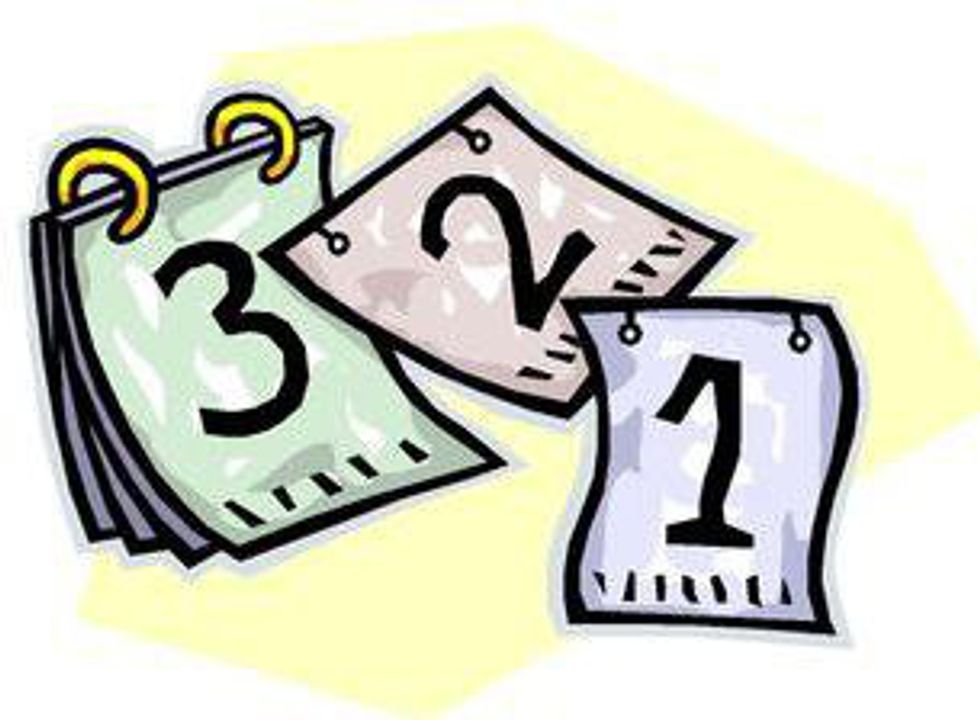I bought my first car this year, on Memorial Day. After an exhausting day of visiting various dealerships, dealing with persistent salesmen, and looking at so many prices my head hurt, I finally decided (with the help of my parents) on a 2014 Kio Rio. She’s red, she’s cute, and her name is Lorraine. Should be an ecstatic time, right?
That’s what I thought until I was sitting with a huge contract in front of me and a stack of paperwork that didn’t seem to dwindle as I kept signing and initialing my life away, at least for the next 5ish years. I almost wanted to skip out, because of the impending doom of yet another payment, but I knew I needed it. So I signed the documents, and she became mine.
I drove it home, and the excitement began to kick in a little more. I had bought my first car. Actually bought it! With my own money! A feeling of elation set in, and I was so proud of myself. Not many people can say that they bought a car at 19. Which is exactly where the problem lies.
As I have reiterated many times before in other pieces of writing, I am extremely blessed to attend UCLA. My two years here have been nothing but a privilege and eye-opening. However, with this eye-opening came the staunch realization on the reality of money.
I grew up in a suburban neighborhood and a suburban city. Most of my friends and people that attended my high school are middle class, even bordering on upper middle class. Every year, people would post on social media or gushing about the car their parents bought them for their 16th birthday or squealing over the excitement of a prom dress that cost the amount of a wedding dress or the staggering amounts of money they received for their graduation. It no longer became a surprise to see these posts, and although the pangs of jealousy would sometimes hit harder than expected, I mostly became numb to these frequent displays of wealth.
Coming to UCLA furthered this invisible chasm between myself and my peers. An overwhelming amount of students have their parents paying for their tuition and cost of living, and students frequent businesses on streets like Melrose and Rodeo Drive. Even if they do have student loans, often times they're only a few thousand dollars, maybe up to 10K. I look at myself, who got a toy car as a present only 16th birthday (thanks, Dad!), who thrifted her prom dress for $20, who got take out Chinese food for graduation, who frequents the financial aid office more than I’d care to admit, and I can only be grateful for the position that I’m in.
In no way is my family disadvantaged, and we are incredibly blessed with the financial situation we are in. We fall in that awkward middle-class range where we have enough to live on but not enough to pay for luxuries like college tuition or new cars. I knew this going into school, so I obtained a job in my fall quarter, not as an extracurricular or something else to do but to have money to buy books and food and pay for living expenses. I can’t stress enough how crucial having a part-time job is for any student or any person.
Being in this situation has made me aware of the reality of money; it is fickle and slippery. Learning to be careful with it, how to have spending habits, how to save, how to budget, has been a series of mistakes and consequences. I have learned how to fill out W-2 forms and deal with tax returns and create budget ledgers and manage bills and payments and the benefits from this are immense. I know people who have never written a check or paid a bill in their life; that is frightening. When you are handed everything, when you don’t work for things, they become less valuable to you because you weren’t the one who put the effort forth to attain them. (I also know people who have never not worked a day in their whole life and struggle to get even food on the table, but the alarming wealth gap is a different discussion for a different time.)
In no way do I want to demean anyone who has been privileged with wealth; children and students cannot change their parents’ financial situations. If someone is born into money, I think that’s a huge blessing, and there are many lessons to be learned from being responsible for large sums of money. At the same time, it’s so important to learn how to handle money and be independent, because unless you live under your parents’ roof (metaphorical monetary roof) for the rest of your life, the real world is going to hit hard if the wells run dry. I wholeheartedly believe schools should teach classes on practical real-world applications such as how to write a check or what a tax return is, and parents/guardians should introduce these important basics early on so their kids actually understand how things like mortgages and loans work. I can’t imagine graduating college and not having a clue as to what credit is or how to build it.
I, like many, have been reckless with my money and regret not implementing rules and boundaries for myself sooner. There are many days when I have anxiety over how much money I will make and paying the bills or I just daydream about what it would be like to have more money. If we as young people learn to value not money itself but how to be practical and smart with money, then we can stop worrying/obsessing over it and instead turn our focus onto more long-lasting, eternal things of worth.























